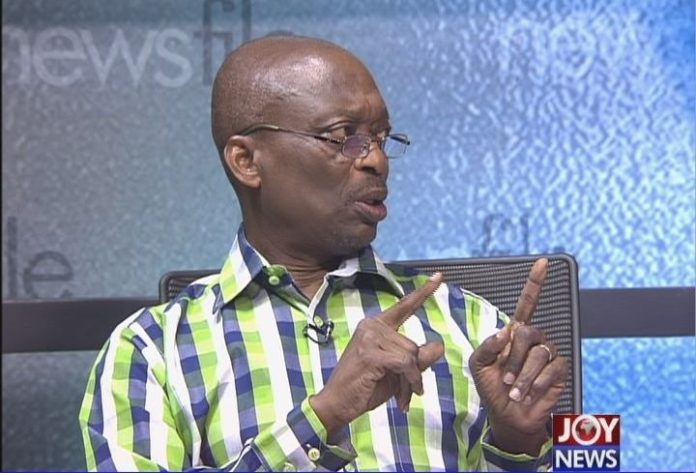Editor-In-Chief of the New Crusading Guide Newspaper, Abdul Malik Kweku Baako Jnr has revealed that supporters and activists of the June 4th insurrection felt betrayed when Jerry John Rawlings staged another coup d’état on December 31, 1981 to overthrow the democratically elected People’s National Party’s (PNP) government.
Mr. Kweku Baako, who disclosed that he was an activist of the revolution, stated that the principles and mission behind the insurrection was to ensure that the officials of the Supreme Military Council 1 and 2 governments whom they claimed had engaged in acts of corruption and destroyed the image of the military were punished and that their punishment was severe enough to deter future military interventions.
They therefore viewed Mr. Rawlings’ coup d’état in 1981 which ousted the PNP’s government as a betrayal of trust as well as the principles and mission of the June 4th Revolution which was to prevent the occurrence of another coup d’état.
“That event had its own historical significance. We were young men then, radical, very militant and angry at the situation that prevailed in the country. Don’t forget we were under a military rule even though it was in a certain form of transition to restore constitutional rule and young men like us had our focus on the punishment for the military officers who had assumed civil position and raped the Ghanaian economy, destroyed the institutional discipline of the armed forces. We thought there was no way for them to just leave the scene without being sanctioned.
That was the motivation and then to also ensure that the sanction was such that it would create a culture of deterrence against future military intervention. When 31st December happened and incidentally the leader of the 31st December was also the nominal leader of the June 4, it was more or less like a betrayal of the principles and mission of June 4th. The common denominator between the AFRC and the PNDC was the personality of Rawlings. We thought that was a betrayal so we decided to also contest the 31st December coup d’état,” he stated in an interview on Accra-based Asaase Radio.
The veteran journalist said this while sharing his views on whether the June 4th Uprising should be commemorated or not.
Kweku Baako, while justifying the June 4th Uprising, stated there is no need to commemorate the days as it brings back painful memories to those who were hurt as a result of the excesses of the insurrection and does not promote national unity.
He expressed excitement over the fact such events are no longer commemorated by the state but wants political parties to ceased commemorating them.
The June 4th Revolution also known as the June 4th Uprising was a military takeover of governance of Ghana led by Flt. Lt Jerry John Rawlings. Mr. Rawlings who was then a junior officer led other junior military officers to overthrow the Supreme Military Council 2 government which was led by senior military officers.
Leading members of the Supreme Military Council’s government including Akwasi Amankwaa Afrifa, General Ignatius Kutu Acheampong and Major General Edward Kwaku Utuka were executed in the process.
Following the overthrow, the Armed Forces Revolution Council (AFRC) led Mr. Rawlings took over the reigns of governance of the country from June 4, 1979 to September 24, 1979 when it handed over power to the democratically elected PNP’s government.
Mr. Rawlings, however, staged another coup d’état in December 1981 ousting the democratically elected government and bringing into office another military government known as the Provisional National Defense Council (PNDC).
Justifying the illegal act, Mr. Rawlings claimed that the military takeover was necessary due to what he said was the failure of the PNP’s government to provide effective leadership and the collapse of the national economy as well as state services.




